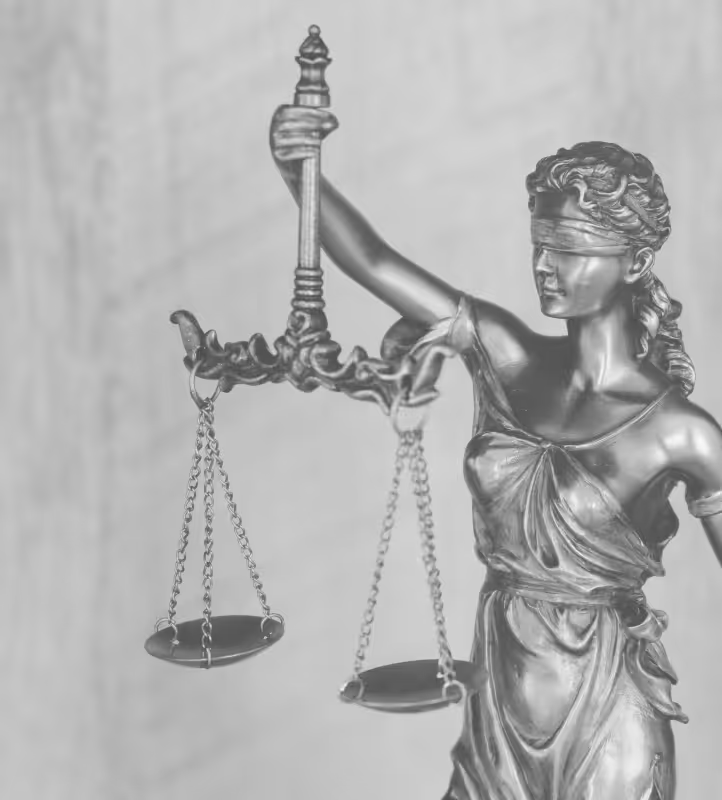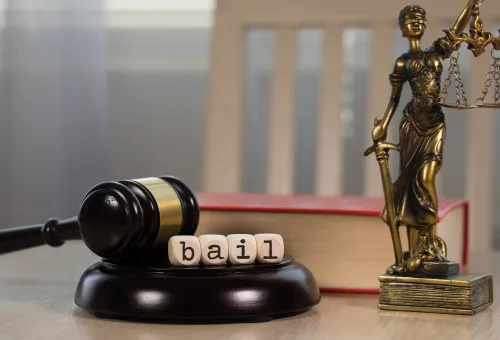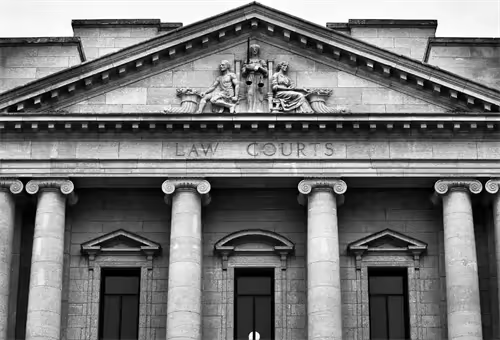Bail / Release Application

Urgent bail applications: secure release while your case proceeds
Applying for bail is often urgent and highly consequential. Courts consider whether an accused poses an unacceptable risk to the community, victims or the integrity of proceedings. A well prepared bail application can be the difference between remand and release. Our team at Brightstone Defence acts quickly to prepare persuasive submissions and evidence to address the court’s concerns and increase the chance of release.
Detailed description
- A focused evidence bundle showing community ties, stable residence and employment or caregiving responsibilities to reduce perceived flight risk or reoffending risk
- Legal submissions that directly address the court’s bail concerns including attendance, safety of others and risk of interfering with witnesses or evidence
- Practical proposals for sensible bail conditions that courts can accept, such as reporting arrangements or residence undertakings
Brightstone Defence offers expert representation in Local and District Courts across NSW, handling urgent bail matters with prompt advocacy and strategic preparation. Contact us for immediate legal advice and support.
What is bail?
Bail is an authorisation for a person that has been charged with a criminal offence to be released from custody for the time that their matter is before the courts. Bail is governed by the Bail Act 2013 (NSW) and can include conditions that mitigate the risk of failing to appear at any proceedings, committing further serious offences, endangering the safety of the community or interfering with witnesses or evidence. These risks are known as ‘unacceptable risks’ under Section 19 of the Bail Act.
Depending on the circumstances and facts will constitute whether bail is granted. It is crucial that you obtain professional legal advice and support when wanting to complete bail applications. Applying for bail can be a complicated process and often requires very strong submissions from an experienced defence lawyer to convince the courts that you will return to court on your next court date and are not a risk to the community.
A person may be:
- Granted bail unconditionally
- Granted bail with conditions
- Refused bail
What is Police Bail?
When an accused person has been charged and taken into custody of the police, the police are required to make a bail decision. The police will consider:
- Whether or not you will attend your next court date
- Your criminal history
- Community ties
- Strength of prosecution case
- History of violence
- Risk of committing serious offence
- Endanger the safety victims, individuals or the community
- Whether you are a flight risk
- Whether or not you will interfere with witnesses or evidence
- If you are a repeated offender; whether or not
In more serious cases, police bail will be refused, and bail may be ‘show cause’. If the accused persons seek bail, the person must show cause as to why their detention is not justified. Show cause offences are listed under Section 16B of the Bail Act 2013 (NSW).
Elements the Prosecution Must Prove
The court’s concerns about bail
When the courts consider applications for bail, they may impose bail conditions to mitigate concerns that they may have. The courts will impose bail conditions as stated under Section 20A of the Bail Act if:
- Reasonably necessary
- Reasonable and proportionate to the offence
- Suitable for the specific bail concern
- Not more onerous than needed
- Practical for the accused to comply with
- Likely to be complied with by the accused
The courts can additionally impose additional enforcement conditions where they see appropriate.
Possible Defences
What if I am on bail and am found guilty of an offence?
The latter of being granted bail before the court finds you guilty of an offence will depend on the sentencing outcome for your case. If you are given a custodial sentence and have not served time during or prior to your bail, you will be taken into custody to serve your imposed sentence.
If you have not been given a custodial penalty, you may remain on bail with or without conditions depending on the circumstances to wit the courts have made their decision.
Potential Penalties
What happens if I breach my bail conditions?
Breaching your bail conditions is very serious with potential consequences at the bequest of the police. It is important to understand the possible repercussions of breach. Depending on the seriousness of the breach, the police may:
- Take no action on the breach
- May issue you with a warning
- May issue you with a new Court Attendance Notice (CAN)
- May issue you with a notice that requires you to attend court
- May arrest you without the requirement of a warrant
- May apply for a warrant for your arrest
In the event that you are brought before the court, the courts may reassess your bail. At this stage there are a few options that the courts may exercise. The courts may deem your breach of bail as necessary and grant you bail with the same bail conditions. In the event that your breach of bail was unnecessary but not what the courts consider as serious, they may vary your bail conditions. In cases that provoke more gravity, the courts may revoke your bail and remand you in custody.
The maximum penalty for breach of bail, such as that of failure to appear in court, is up to a maximum of three years imprisonment and, or a maximum fine of $3300.
Additionally, if a post release condition for your bail had a surety, which is the sum of money or property deposited to the courts for your release, may be forfeited.
If you breach your bail conditions it is essential that you consult with a legal professional about your options and how to proceed with your situation, as breaching bail is a serious matter. Brightstone Defence is here to assist you. Contact us today!

Legal Process
& Options
It is important to note that repeat applications are generally not permitted. They may only be considered if there is new information or a change in circumstances that could affect the outcome, or if the earlier decision involved an error of law.
If bail is granted
Common bail conditions include:
- Daily or weekly reporting to the police
- Residential address cannot be changed without court approval
- You may have a curfew imposed on you
- Non-association orders, not being able to contact the complainant or co-accused
- Surety
If bail is refused
- The accused is remanded in custody
- You are able to make a subsequent release application to a higher court
Pleading
Not Guilty
Pleading
Guilty
Timeframes for a bail variation application can vary. Straight forward applications may be heard within a couple of weeks. However, more complex ones can take longer, especially if the prosecution opposes the change or if further evidence is needed.
- Yes.
Even if the variation seems minor, the court will need to formally approve any change to your bail conditions. You, or your lawyer will attend on your behalf at the hearing.
Technically you do not need a lawyer for a bail variation application, however it is strongly recommended. At Brightstone defence, we will;
- Assist in affidavits
- Ensure that your application is legally sound
- Represent you in court
- Deal with any opposition from police or prosecutors
It is advisable to seek legal advice as early as possible when considering a bail variation. At Brightstone defence, we can provide guidance and help you navigate the process effectively.
A bail application is a request made to the court by a person who has been arrested and is in custody, asking to be released from custody until their trial or hearing. Bail is typically granted with conditions to ensure the accused person attends court, does not commit further offences, and does not interfere with witnesses or the investigation.
Bail can be granted at the police station, at the Local Court, or at higher courts like the District or Supreme Court, depending on the circumstances.
Any person who has been arrested and detained by the police or remanded in custody can apply for bail. This includes:
- People charged with criminal offences who are in custody.
- People awaiting trial, sentencing, or appeals.
- People who have been refused bail by police can apply to the Local Court or a higher court (District or Supreme Court).
Yes, bail can be refused in certain circumstances. The court may refuse bail if:
- The accused is charged with a serious offence, such as murder, armed robbery, or serious drug trafficking.
- There is a risk of flight (the accused may leave the jurisdiction to avoid trial).
- The accused poses a risk to public safety or is likely to commit further offences while on bail.
- The accused has a history of breaching bail or other legal orders.
- The court determines that there are reasonable grounds to believe the accused will interfere with witnesses, destroy evidence, or obstruct the investigation.
- A “show cause” bail application is a specific type of bail application that applies to certain serious offences. In this case, the burden is on the accused to "show cause" (prove) why they should be granted bail.
The time it takes to be granted bail can vary depending on the circumstances:
- If bail is granted at the police station, it can happen quickly (often within a few hours).
- If bail needs to be applied for at court, the process can take longer. The application will typically be heard within a few days, but urgent bail applications may be heard more quickly.
- If a show cause application is involved, it may take longer as the court will need to consider the more complex issues involved.
Yes, it is possible to apply for bail after conviction but before sentencing, although bail is not automatically granted in these cases. The court will consider factors such as:
- Whether the accused is likely to comply with the sentencing process.
- Whether there is a risk of reoffending before sentencing.
- Whether the accused poses a risk to public safety.
- Whether there are any exceptional circumstances that would justify granting bail (e.g., health concerns).
Yes, a bail refusal can be appealed. If bail is refused by the Local Court, the accused can appeal the decision to a higher court (District or Supreme Court). Similarly, if bail is granted with conditions that are too strict or unfair, the conditions can be challenged and modified through an appeal.
A surety is a third party who agrees to be financially responsible for ensuring the accused adheres to the terms of their bail. If the accused breaches bail conditions, the surety may be required to pay a specified amount of money (financial guarantee).
Our criminal defence team can prepare and submit your bail application, advise on show cause requirements, and represent you at court hearings.
You can contact Brightstone Defence to book a consultation and receive expert advice on your bail options.
A bail application is a request made to the court by a person who has been arrested and is in custody, asking to be released from custody until their trial or hearing. Bail is typically granted with conditions to ensure the accused person attends court, does not commit further offences, and does not interfere with witnesses or the investigation.
Bail can be granted at the police station, at the Local Court, or at higher courts like the District or Supreme Court, depending on the circumstances.
Any person who has been arrested and detained by the police or remanded in custody can apply for bail. This includes:
- People charged with criminal offences who are in custody.
- People awaiting trial, sentencing, or appeals.
- People who have been refused bail by police can apply to the Local Court or a higher court (District or Supreme Court).
Yes, bail can be refused in certain circumstances. The court may refuse bail if:
- The accused is charged with a serious offence, such as murder, armed robbery, or serious drug trafficking.
- There is a risk of flight (the accused may leave the jurisdiction to avoid trial).
- The accused poses a risk to public safety or is likely to commit further offences while on bail.
- The accused has a history of breaching bail or other legal orders.
- The court determines that there are reasonable grounds to believe the accused will interfere with witnesses, destroy evidence, or obstruct the investigation.
- A “show cause” bail application is a specific type of bail application that applies to certain serious offences. In this case, the burden is on the accused to "show cause" (prove) why they should be granted bail.
The time it takes to be granted bail can vary depending on the circumstances:
- If bail is granted at the police station, it can happen quickly (often within a few hours).
- If bail needs to be applied for at court, the process can take longer. The application will typically be heard within a few days, but urgent bail applications may be heard more quickly.
- If a show cause application is involved, it may take longer as the court will need to consider the more complex issues involved.
Yes, it is possible to apply for bail after conviction but before sentencing, although bail is not automatically granted in these cases. The court will consider factors such as:
- Whether the accused is likely to comply with the sentencing process.
- Whether there is a risk of reoffending before sentencing.
- Whether the accused poses a risk to public safety.
- Whether there are any exceptional circumstances that would justify granting bail (e.g., health concerns).
Yes, a bail refusal can be appealed. If bail is refused by the Local Court, the accused can appeal the decision to a higher court (District or Supreme Court). Similarly, if bail is granted with conditions that are too strict or unfair, the conditions can be challenged and modified through an appeal.
A surety is a third party who agrees to be financially responsible for ensuring the accused adheres to the terms of their bail. If the accused breaches bail conditions, the surety may be required to pay a specified amount of money (financial guarantee).
Our criminal defence team can prepare and submit your bail application, advise on show cause requirements, and represent you at court hearings.
You can contact Brightstone Defence to book a consultation and receive expert advice on your bail options.
SUCCESS CASES & ARTICLES
Brightstone Defence delivers focused criminal defence services year-round and has built a strong track record of successful outcomes.
Meet our lawyers
WORLD CLASS
REPRESENTATION
100+ 5 Star Reviews
Personalised legal strategies tailored to each case
Recognised leaders in criminal defence law
Free initial consultation and case evaluation
Proven success in high-stakes and complex cases
Get AN instant estimated Quote
and a free consultation session
Facing criminal charges? Our experienced criminal defence lawyers are here to help. Book your free consultation now to discuss your case and understand your options.










